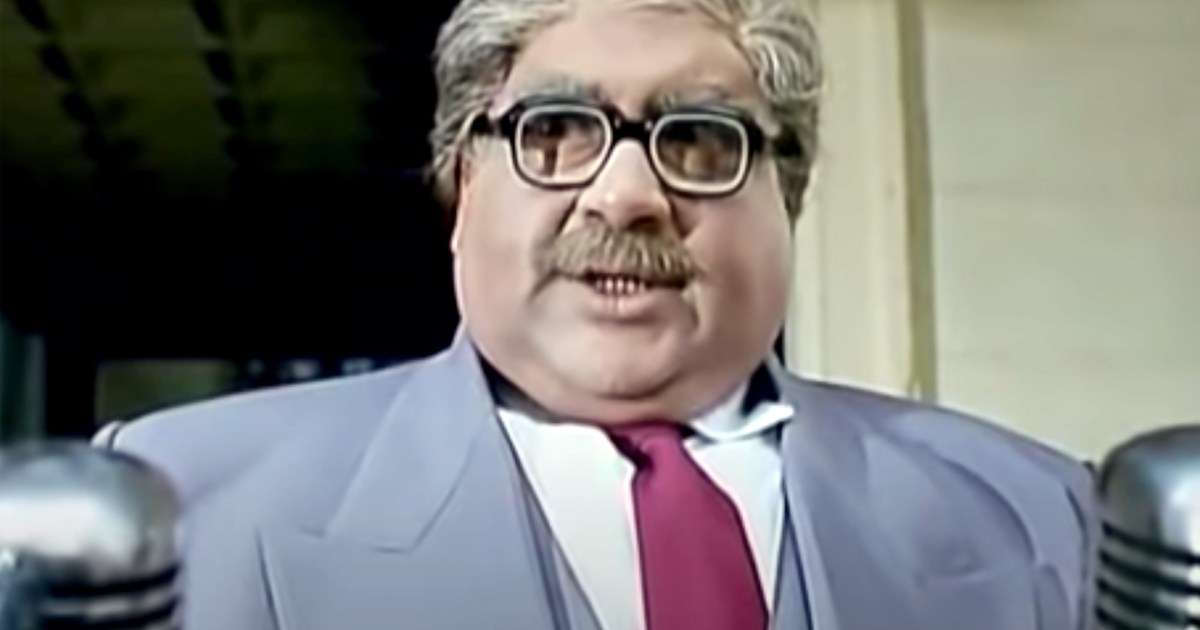In June 2000, the premiere of the movie Al-Nazer, written by the author Ahmed Abdullah, directed by Sharif Arafa, formed the climax of the stardom of the late Alaa Wali Al-Din, the true starting station of Ahmed Helmi, and the first appearance of the Lambi character that gave Muhammad Saad years of squaring on The throne of the comedy revenues in Egypt, all of these along with the late Hassan Hosni, Hisham Selim, Basma, Sami Sarhan, as well as Hanan Al-Taweel and Youssef Eid.
20 years have passed, but the movie is still present today, not only at the cinematic level, but also at the level of Egyptian popular culture, so that new generations may not have been born at the time of the movie’s release, its scenes are still used in the comics industry that express their condition today .
Lost Generation Comedy
The main plot of the film revolves around Salah, the son who has been the victim of his authoritarian father throughout his life, and when the father left the world he became lost, not knowing what to do and where he can go, and so the events continue until he finds his way through friends, experiences, conflict and love, This youthful journey to find meaning is still very similar to youth today.
This plot made the comedy mainly dependent on the situations Salah and his friend Atef often pass, these two young men meet after that with the “Lambi” to complete the lost trio of generation, Salah and Emotion without experiences, personality or goal, and the Lambi as if a person from another world, A scientist who does not recognize traditions, customs and authority, but rather speaks his own language, the language that Salah will teach in one of the scenes of the film.
This comedy, which is based on the presence of young people who are anti-society and alienated from its elements, is one of the most important reasons why the beholder remains to this day.
Lamb entity
The main characters and even sub-characters in the scenario of the beholder are occupied with high professionalism, they have their own details, they have their own dictionary, and some even have a special dynamic language, Salah, Emotion, Gems, Sayed Dahi and Llami, each of them has its own style, but Lambi is unique in that it is special.
One of the most important reasons why the beholder remains until today is the personality of the lamp, the lamp is a special case in the new Egyptian cinema, a figure who expresses the Egyptian man who was not affected by modernity, does not carry an identity card because he does not realize the existence of power and does not think about it, nor does he pay attention to society and its rules, Salah uses the classic Egyptian young man, to guide him on the methods of rebellion and the knowledge of life, and to teach him the glossary of the age, the era in which Egypt did not realize modernity, as it had left the classic as well, becoming a heterogeneous mixture of everything, the era of chaos, or as the lamp calls it "a time" The ... concluded salvation. "
Ala Wali Al-Din
Alaa Wali Al-Din here reaches his most important glow point, the point at which he rose to the top of the pyramid of the generation of the new stooges, to take it from Muhammad Heneidy, who ascended the whole generation to the summit two years earlier in my American university.
Alaa Wali Al-Din who left early presented in this movie three characters with different voices and psychological and dynamic performance, Ashour the strong, strong-minded Ashour, the mother’s self-confident jewels and love for her son who has “faithfulness” and humor, and the righteous hesitating young boy who knows nothing about the world.
In addition to this, a number of other characters that Ala Wali Al Din presented in the opening sketch of the film, throughout the Pharaonic and Islamic era and the era of the 1919 revolution, the scenes of Ala Wali Al Din and his way of ending his scenes are the main store of "Comics" in this film, starting with "Love and Return Tani" , Right up to "Professor Lemby ... de Baba's death certificate."
Zakaria Al-Dardery and others
The auxiliary characters in "The Beholder" have their own comic glow moments throughout the events of the film, which makes the movie continuously enjoyable, the rhythm never drops, Youssef Eid, Hanan Al Taweel, Suleiman Eid and Sami Sarhan, everyone has their distinctive sentence that fans remember until today. This applies Also on the characters appeared for one scene such as Hajjaj Abdul Azim who appeared in the scene of the competition and Hussein Abu Al-Hajjaj, who played the role of "Micah".
These multiple comic characters are mainly due to the writer Ahmed Abdullah, who was lost by the Egyptian comedy after that when he decided to go to the melodrama through the movies of joy, cabaret, mawlid and others. The last name that should not be overlooked either is director Sherif Arafa.
Another irony stations
"The Nazer" represents the last moments of social and political mockery in the Egyptian director Sharif Arafa's march, so that it can be placed in the same context with his films "O Mahlabiyya Ya" and "Hiss Hess", the first Arafat films that then moved to the stage of Waheed Hamid and Adel Imam where politics appeared More clearly, the dose of irony was reduced, to return to "The Beholder" again, before he completely abandoned his style in the following films that were dominated by "Action", and even when the comedy appeared as in "The Great Bean of China" it was completely devoid of social irony.
Thus "the beholder" gained its importance from the sum total of the creations of all of these, and it was no coincidence, and because honest comedy digs its place deep in the memory of peoples, it remains alive to this day.

